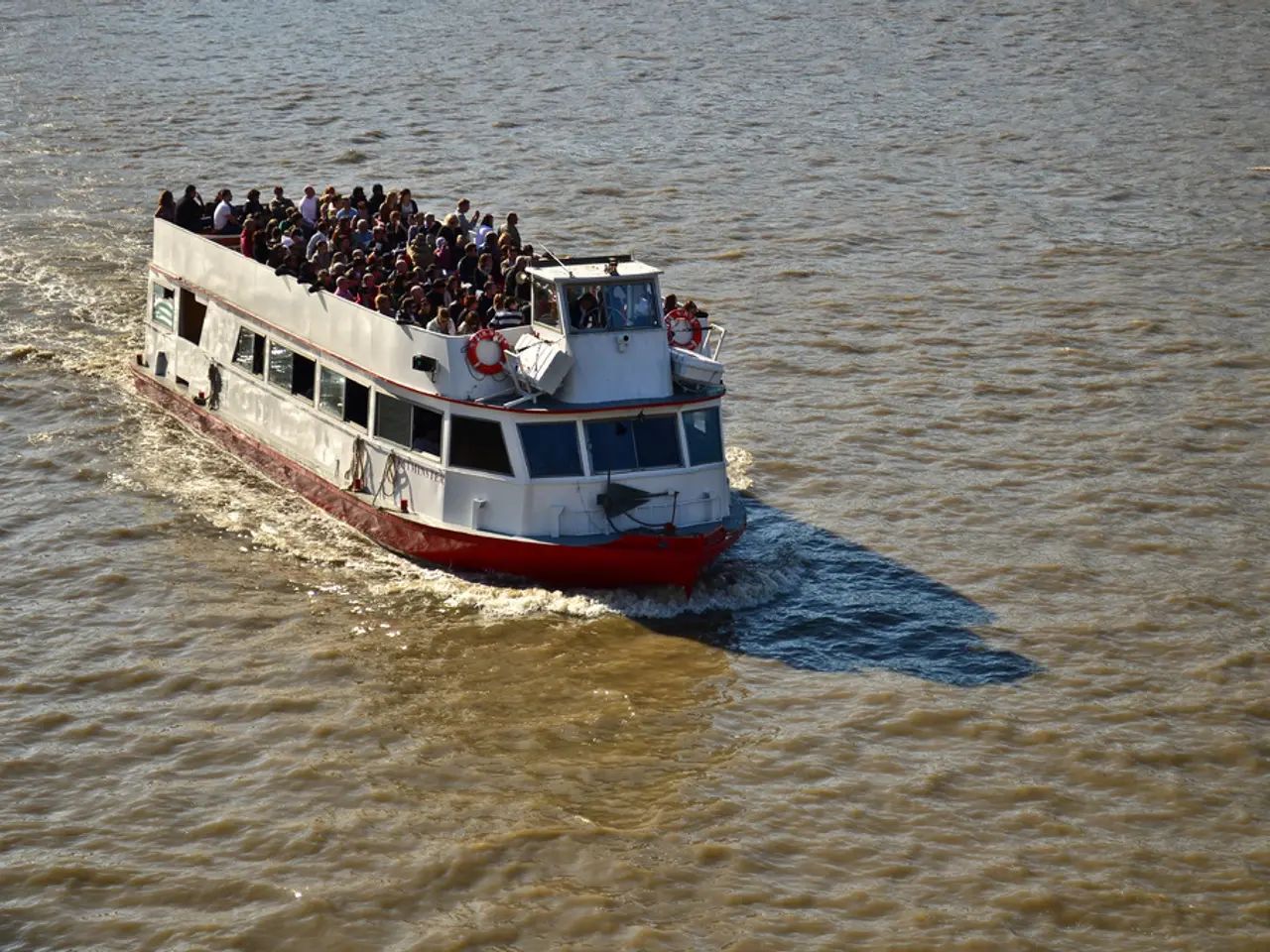Cruise Companies Challenge Hawaiian Climate Tourism Levy in Legal Action
Hawaii is set to impose a new "green fee" tax on cruise ships and nightly lodging accommodations in 2026, as signed into law by Gov. Josh Green this spring (Act 96). The tax aims to create a consistent funding source for conservation and rebuilding initiatives in the state, which are "critical" to the health and safety of locals and visitors, according to the state.
However, the proposed tax has sparked opposition from the cruise industry and some local businesses. Cruise Lines International Association (CLIA), a global advocacy group representing most cruise lines, is leading the lawsuit against the tax. The plaintiffs seek a preliminary injunction to declare Act 96's cruise-related provisions unconstitutional and block its enactment on January 1, 2026.
Opponents argue that the new tax could deter tourists from booking cruises to the islands. Some fear that the increased tax rate, set to rise from the current 10% to 11% in 2026 and further to 12% in 2027, could have a "devastating" impact on cruise ship operators and local businesses, potentially deterring many potential visitors from vacationing in Hawaii.
The cruises support the local economy significantly, bringing in thousands of visitors each year and contributing to an annual economic growth of over $600 million. The cruises also support thousands of local jobs. If successful, the lawsuit could potentially save tourists a couple of hundred dollars in vacation taxes next year.
The legal teams will challenge Hawaii's expanded overnight accommodation tax on grounds that it may be unconstitutional or unlawfully imposed. If the lawsuit is successful, the total tax that tourists could be charged per nightly accommodation next year could be reduced, potentially making a Hawaii vacation more affordable for many.
No statement has been released by the defendants, which include state and county finance officials and the Hawaii Department of Taxation, regarding the pending litigation. Each of Hawaii's four counties can add an extra tax on top of the state Transient Accommodations Tax (TAT), with a maximum possible additional tax of 3%. This means that the total tax that tourists could be charged per nightly accommodation next year could be up to 14%.
The Hawaii Disney Cruise Line adventure could be impacted by the new tax, if implemented. The cruises are a vital part of the tourism industry in Hawaii, and the outcome of this lawsuit could have far-reaching implications for the state's economy and its tourism sector. The case is currently ongoing, and a decision is expected in the coming months.
Read also:
- visionary women of WearCheck spearheading technological advancements and catalyzing transformations
- Recognition of Exceptional Patient Care: Top Staff Honored by Medical Center Board
- A continuous command instructing an entity to halts all actions, repeated numerous times.
- Oxidative Stress in Sperm Abnormalities: Impact of Reactive Oxygen Species (ROS) on Sperm Harm








